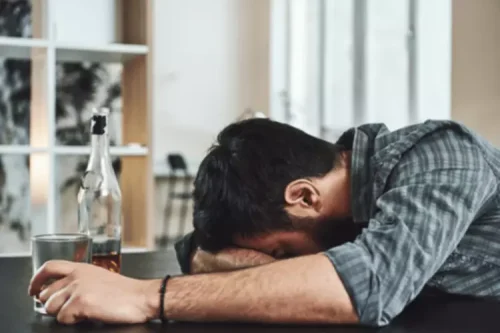How Alcohol Affects Feet: Alcoholic Neuropathy

Other medical problems like infections, tumors, bone marrow disorders, exposure to poisons, injury or pressure on the nerve, and low vitamin levels (among other things) can also lead to nerve damage, per the Mayo Clinic. For the management of hot flashes, your healthcare provider may recommend hormone replacement therapy or lifestyle management. If you are having whole-body burning sensations due to anxiety or panic disorder, your healthcare provider may recommend psychotherapy and possibly medication. It doesn’t happen overnight, but diabetes can cause nerve damage, especially if your blood sugar is out of control. You may have pain, tingling, or no feeling in your feet, legs, and hands. In an inpatient facility, you will cut off the alcohol consumption and allow the body to recover properly.

Outlook of Alcoholic Neuropathy
- Furthermore, females tend to be more vulnerable to the brain damage and neurotoxic effects of alcohol [134].
- The prevalence of impairments in ANS in alcohol-dependent patients varies from 20 to 99% [160].
- While peripheral neuropathy generally cannot be cured, there are several medical treatments that can be used to manage the pain of alcoholic neuropathy, aiding in your recovery.
- Izumi et al. [73] also demonstrated that a single day of ethanol exposure in rats on post natal day 7 results in significant apoptotic neuronal damage throughout the forebrain after 24 h of ethanol administration.
Medical, mental health, and substance abuse providers all work together to form and carry out a treatment plan that helps to manage all disorders at the same time. They get worse with more alcohol consumption, so if you stop drinking and seek professional medical attention, you can manage the symptoms of the disorder and potentially keep the nerve damage from worsening. Although the central nervous system has its personal defensive mechanism to protect itself from toxic and metabolic influences, the brain will still suffer.
- Such articles are not suitable for any (self-) diagnosis and treatment of individual illnesses and medical indications.
- Physical therapy and orthopedic appliances (such as splints) may be needed to maintain muscle function and limb position.
- Motor nerves are the nerves responsible for all voluntary skeletal and somatic movement such as moving the leg or arm.
- Heavy and chronic drinking is also often tied to nutritional deficiencies.
History and Physical
Females can be more susceptible than males to many of the negative consequences of alcohol use, such as nerve damage, as they may begin to see effects from a lower amount of alcohol consumption. Diagnosis usually involves a healthcare provider collecting a medical history, performing a medical and neurological exam, and performing blood and urine tests. Treatment options include steps to quit alcohol use and managing symptoms of the disease. Individuals with alcoholic neuropathy can make a partial or full recovery, depending on the extent and duration of their alcohol consumption. Alcoholic neuropathy is a severe condition caused by excessive alcohol use.
What Causes Alcoholic Neuropathy?
- This can cause your ligaments, tendons, and muscles to become inflamed and swollen.
- This heat sensitivity may be even more intense if you’re going through menopause.
- Oxidative stress is known to play a very important role in experimental animal models of neuropathic pain.
- In many cases, treating the condition or problem that causes your neuropathy can curb nerve damage and ease your symptoms.
- The peripheral nerves also send sensory information to the central nervous system through sensory nerves.
Research shows that most patients with alcoholic neuropathy displayed poor sensory features, numbness, and impaired sensation of vibrations. To prevent any additional nerve damage, drinkers must abstain from alcohol. If you are struggling with neuropathy, contact the best 90-day substance abuse treatment center for alcoholism in Dallas-Fort Worth, Texas. The best way to prevent peripheral neuropathy is to manage medical conditions that put you at risk. The combined actions of catecholamines and glucocorticoids, via their receptors on sensory neurones, demonstrate a novel mechanism by which painful alcoholic neuropathy is induced and maintained. Additionally, people with alcohol use disorder experience allodynia during alcohol withdrawal.

How to Prevent Alcoholic Neuropathy

Fortunately, after receiving a diagnosis, people with alcoholic neuropathy can make healthy changes to minimize symptoms and receive help for chronic alcohol use. The damage may be the direct result of long periods where you drank too much alcohol. Nutritional problems linked to alcohol use, such as vitamin deficiency, can also cause nerve damage.
- The percentage of alcohol-dependent patients affected by ALN is estimated to be 66% [50, 51].
- When the body is exposed to toxic compounds, the system is at risk of developing neuropathy.
- This can be achieved by complete alcohol abstinence and a balanced diet primarily supplemented by B6, B12, and E vitamins, as well as folate, thiamine, and niacin.
- Thus, it is quite possible that chronic alcohol consumption is responsible for inducing neuropathy by activation of the caspase cascade and may be an important target for the treatment of alcoholic neuropathy.
- When alcoholic neuropathy causes nerve damage, this damage is often permanent.
Alcohol affects immune responses
An ankle-foot orthosis (AFO) may be needed to assist patients with weak ankle dorsiflexion, eversion, and/or plantar flexion. This device also can help with ankle proprioception and can improve gait and prevent ankle sprains. Vigilant foot care and the use of shoes with an enlarged toe box are useful in preventing foot ulcers.

A diet poor in nutrients or avoiding eating can make nutritional deficiencies worse. A person should speak with a doctor if they are experiencing any symptoms of alcoholic neuropathy or if they are concerned about their alcohol alcohol neuropathy use. A systematic review suggests that 46.3% of people who engage in chronic heavy alcohol use have alcoholic neuropathy. A person who drinks alcohol excessively may start to feel a tingling sensation in their limbs.
How Does the Recovery Process Feel Like?
That’s why it is essential to focus on the multiple pathways that have led to the development of the condition. For the nerves to function properly, the body needs a stable balance of chemicals and salts in the blood. However, when there is an illness affecting the kidneys, it becomes difficult to filter out all those chemicals. When you pair that with pain and hypersensitivity, it becomes difficult for the hands and feet to function.
muscle cramps, twitching, and weakness
In addition, they may order blood tests to check for vitamin and nutrient deficiencies. Once alcohol use has been addressed, your doctor can focus on the neuropathy itself. Nerve damage can also make it difficult for you to carry out the functions of daily life. Alcohol also alters the function of the stomach, liver, and kidneys in ways that prevent the body from properly detoxifying waste material. This waste then builds up and harms many regions of the body, including the nerves.
Comentarii recente